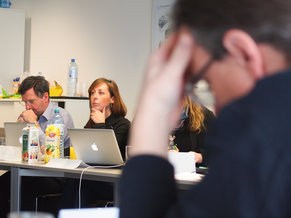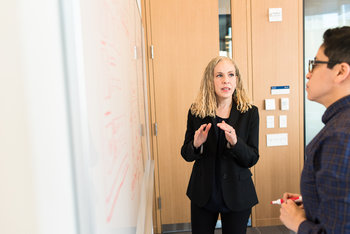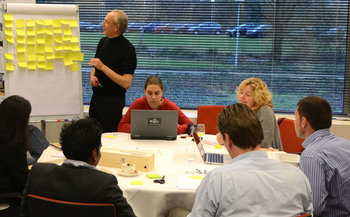
Knowledge
Becoming an expert in a domain or profession such as a software developer with a goal of becoming an information security expert.Quality
Improving the quality of your work. For example, a brand designer with a goal to produce increasingly creative and refined works that consistently impress clients.Customer
Improving customer service and customer experience. For example, front desk staff at a luxury hotel who targets a promotion to hotel concierge by gaining a reputation for friendly, diligent and efficient service.Stakeholders
Improving your ability to build relationships and influence stakeholders such as investors, employees, partners, customers, regulators and communities.Sales
Salespeople usually have a goal to close more sales. Improving customer relationships to reduce churn is another common sales goal.Communication
A communication goal such as improving your public speaking skills.Marketing
A marketing goal such as improving your advertising campaigns to generate higher brand awareness.Management
The goal to become a manager by learning to motivate teams and control resources such as budgets. Current managers may have a goal to improve their visibility in an organization by delivering value that gets noticed. For example, identifying and delivering a revenue or cost reduction strategy.Leadership
Demonstrating leadership in your role by influencing stakeholders and contributing to the success of others. For example, a goal to become an expert in your field who mentors team members and plays a central role in strategy and decision making.Decision Making
Improving the quality of your decisions and the efficiency of decision making processes. For example, a goal to discover data and develop reports that allow important decisions to be based on evidence.Problem Solving
Improving your problem solving capabilities. For example, a software developer with a goal to understand the software architecture of a large system such that they are able to quickly solve problems that others view as difficult.Creativity
Improving the creativity of teams by challenging the status quo and experimenting with new approaches. For example, an architect with a goal to win more business with brave new designs that get client and media attention.Risk Management
Risk related goals such as an IT manager with a goal to reduce the risk of system outages.Productivity
Improving your output or the output of a team. For example, a goal to introduce new tools that reduce a 5 hour task to 30 minutes.Promotion
A career goal often includes a promotion you are working towards. For example, if an interviewer for an associate software development role asks you "where you see yourself in 5 years?" you might mention a senior software development role. Both unrealistically high expectations or a lack of ambition can be perceived negatively. It is often best to state a reasonable goal for a promotion that is available at the firm.Summary
The following are common types of career goals: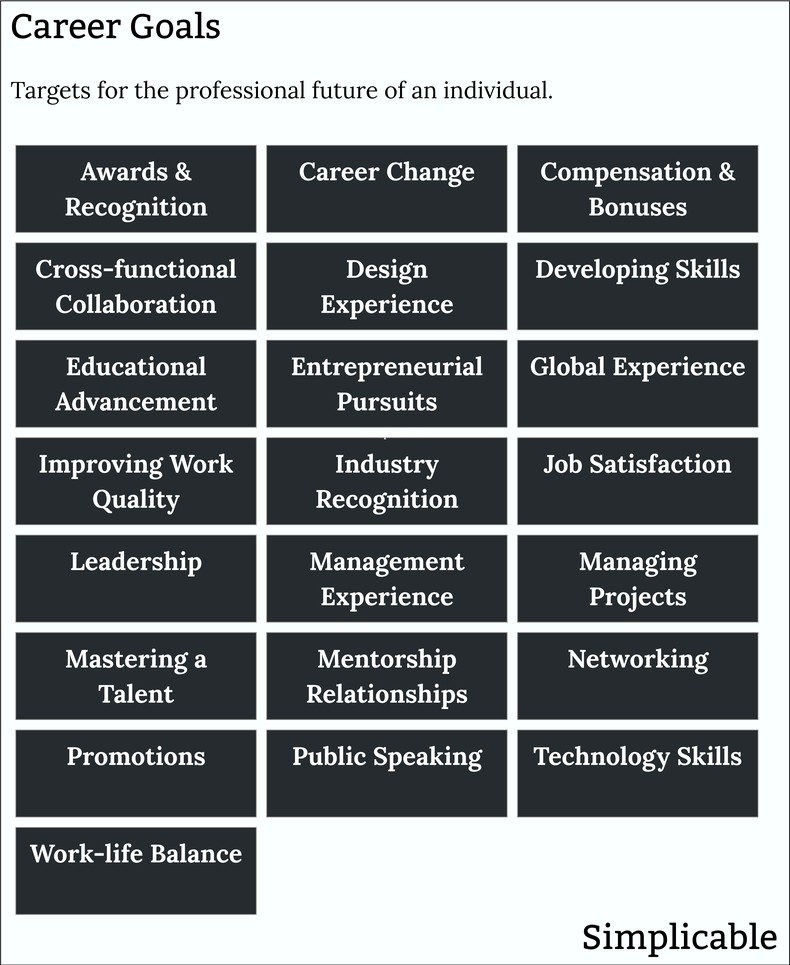
Overview
A plan to improve in your career in some way such as learning, gaining experience, building relationships, taking on responsibility and earning promotions.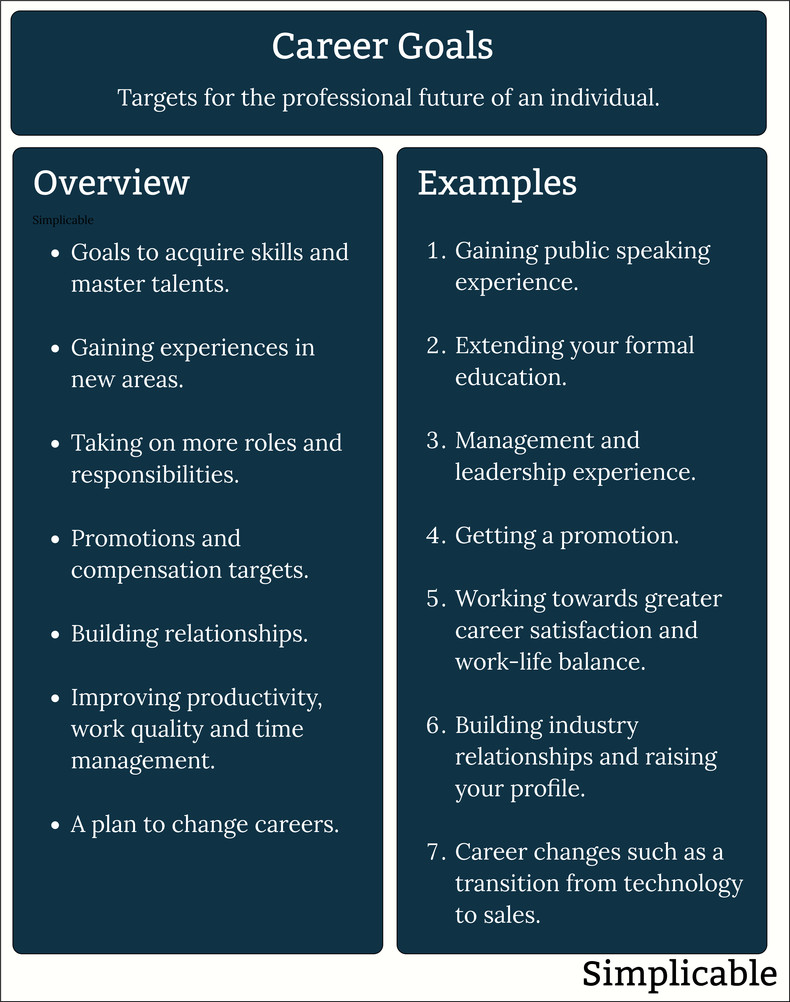
Notes
Short term goals are generally 6-12 months and typically involve making improvements that are important to your performance. For example, a software developer who wants to apply time management techniques to be more productive.Long term goals are 1-7 years and indicate your ambition and the direction of your career such as a software developer who wants to become an information security expert and manager of information security teams.When planning your career goals, it is important to remember that you may be asked how you plan to achieve them. A customer service agent with a goal to convert dissatisfied customers into satisfied customers may be asked how this is done. This may be followed by scenarios such as "what if the customer is yelling?"| Overview: Career Goals | ||
Type | ||
Definition | The high level objectives an individual establishes for their career. | |
Related Concepts | ||





